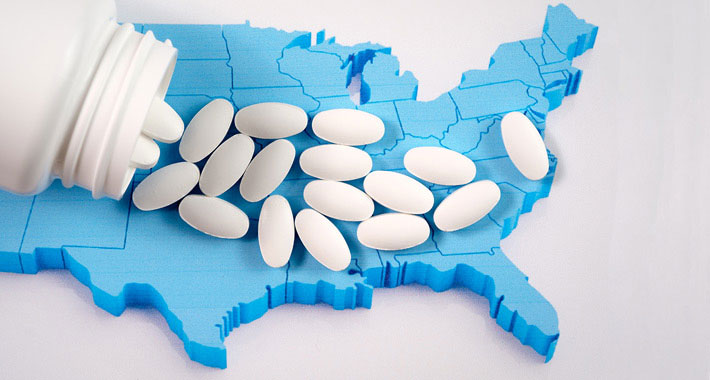
Boards Community Offers Subspecialty in Addiction Medicine, Educational and Continuing Certification Programming Focused on Opioid Epidemic
CHICAGO – January 3, 2018 – The American Board of Medical Specialties (ABMS) and its 24 Member Boards have joined the fight against the growing opioid crisis in the United States and throughout the state of Florida. Officially recognizing Addiction Medicine as a subspecialty in October 2015, the designation allows physicians certified by any of the 24 ABMS Member Boards to apply for the new certificate through the ABMS sponsoring Board – the American Board of Preventive Medicine.
“Substance use and addiction are serious health problems of enormous proportion and impact in this country and on our society,” stated ABMS President and Chief Executive Officer Richard Hawkins, MD. “By offering a certification in this important subspecialty, we continue in our role to assure patients and their families that their physician meets the high standards of practice and clinical knowledge and has completed an approved educational program in this emerging medical field.”
In addition to the establishment of the Addiction Medicine subspecialty, the Boards are integrating accredited safe opioid education initiatives into their Maintenance of Certification (MOC) programs to educate the more than 47,000 Board Certified Florida physicians about opioid abuse, misuse and responsible prescribing protocols. Examples of the educational offerings include:
- Many Boards have approved Opioid Prescriber Education Programs that are indexed in the ABMS MOC Directory, an online repository of competency-based continuing certification activities. These activities include Federal Drug Administration Opioid REMS (Risk Evaluation and Mitigation Strategy) compliant activities, such as the Safe and Competent Opioid Prescribing Education (SCOPE of Pain) – an online, case-based educational program designed to improve safety with prescribing opioids offered in collaboration with the Council of Medical Specialty Societies and Federation of State Medical Boards.
- The American Boards of Anesthesiology, Internal Medicine and Pediatrics have more than 30 opioid-based approved educational activities on their CMEFinder platform.
- The American Board of Anesthesiology’s (ABA) MOCA Minute continuing certification program now includes questions that address topics related to the opioid crisis, including questions about multi-modal analgesia and enhanced recovery pathways to reduce postoperative pain and opiate dosing. The program also includes questions about substance abuse and recognition of impaired providers in an effort to inform and educate anesthesiologists about this critical health issue and ways in which they can intervene.
- The American Board of Obstetrics and Gynecology has created a new “Emerging Topics” category as part of its MOC program. Two articles covering clinically relevant information concerning opioid use will be included in the “Emerging Topics” release of articles to Diplomates in January 2018; additionally, two more articles on the opioid topic will be released in January in the generalist obstetrics category. More article releases are planned for May and August 2018. The article topics for January cover various issues, including post-discharge opioid use after cesarean delivery; opioid use in pregnancy, neonatal abstinence syndrome and childhood outcomes; and shared decision-making intervention to guide opioid prescribing after cesarean delivery.
Additional programming and cooperative efforts are in the planning stages as the ABMS Boards Community continues to explore and assess further ways of using their continuing certification programs to make certain Board Certified physicians are current on the most up-to-date prescribing guidelines and other evidence-based pain management strategies.
Download PDF of this Press Release
-
Read More:
- Announcements |
- Continuing Certification |
